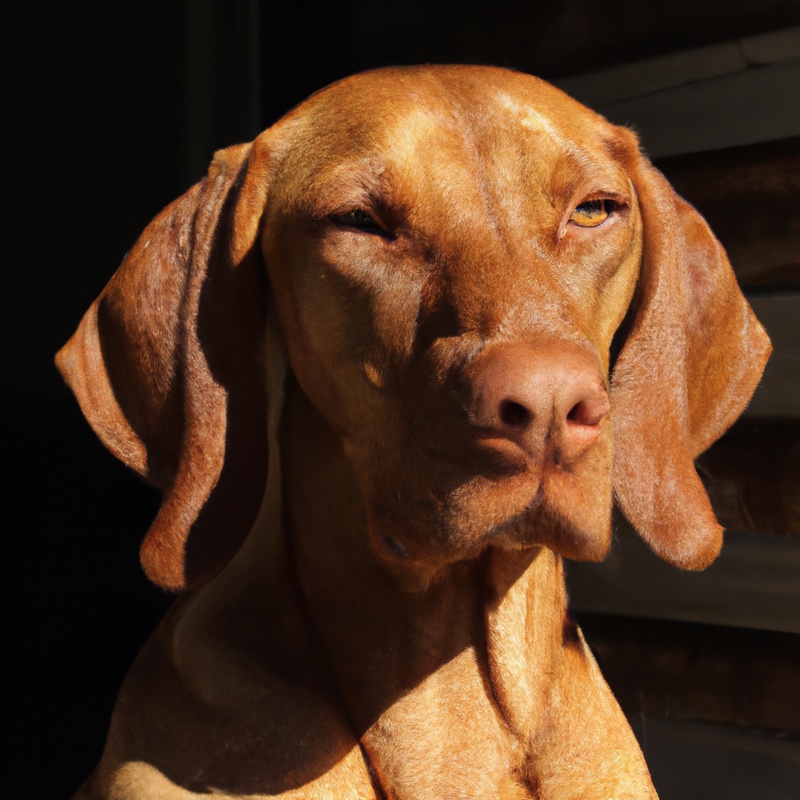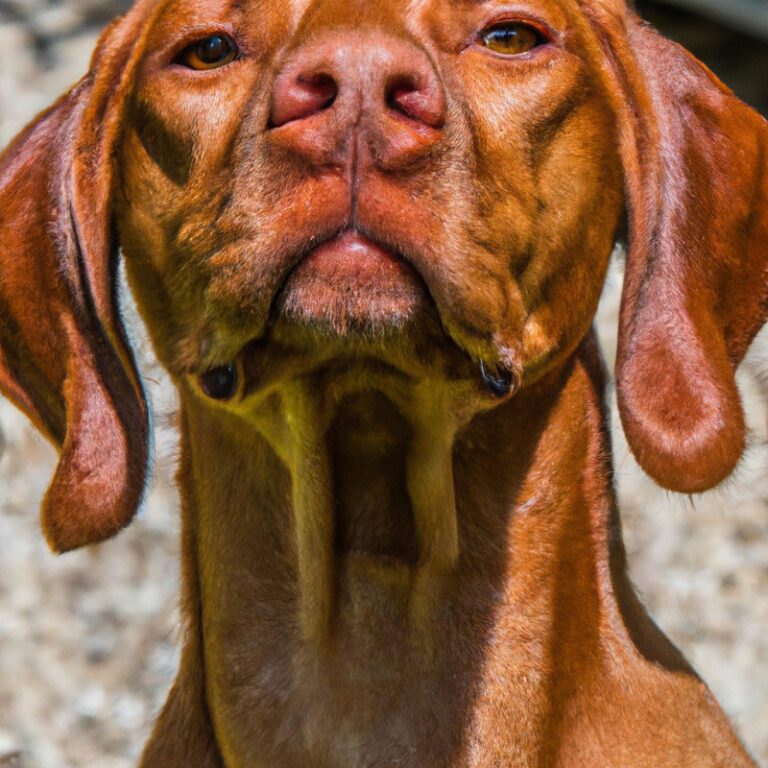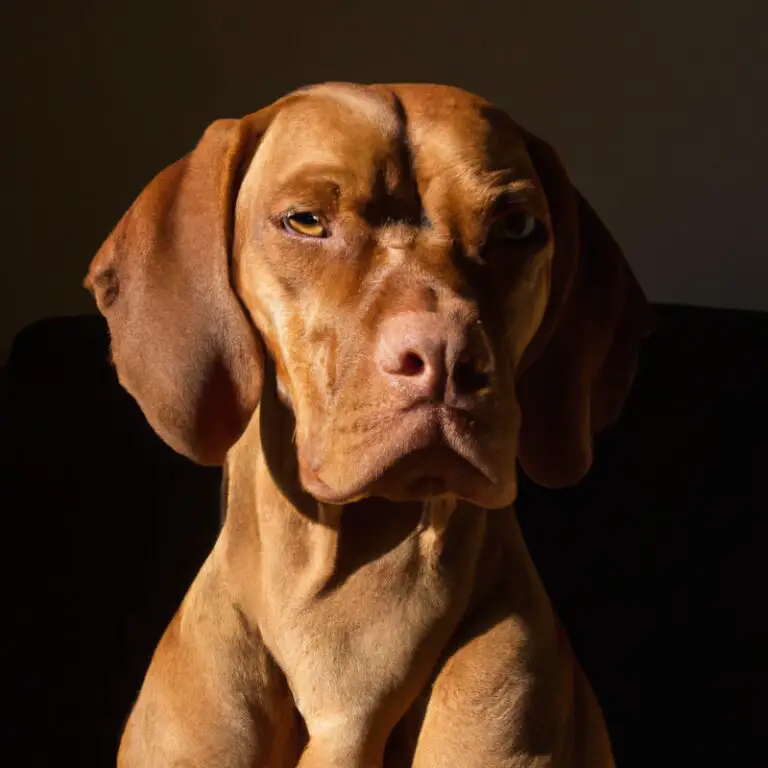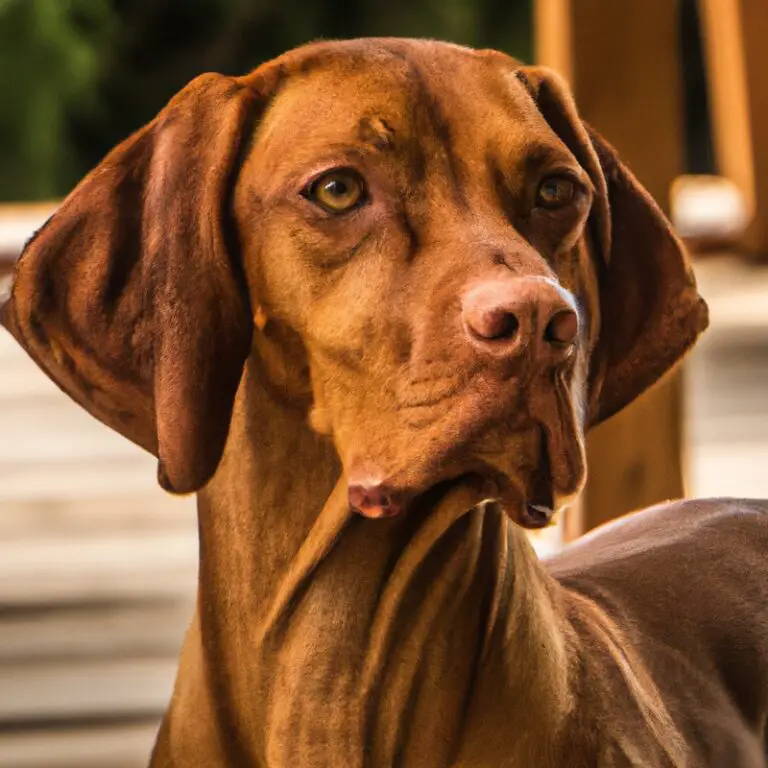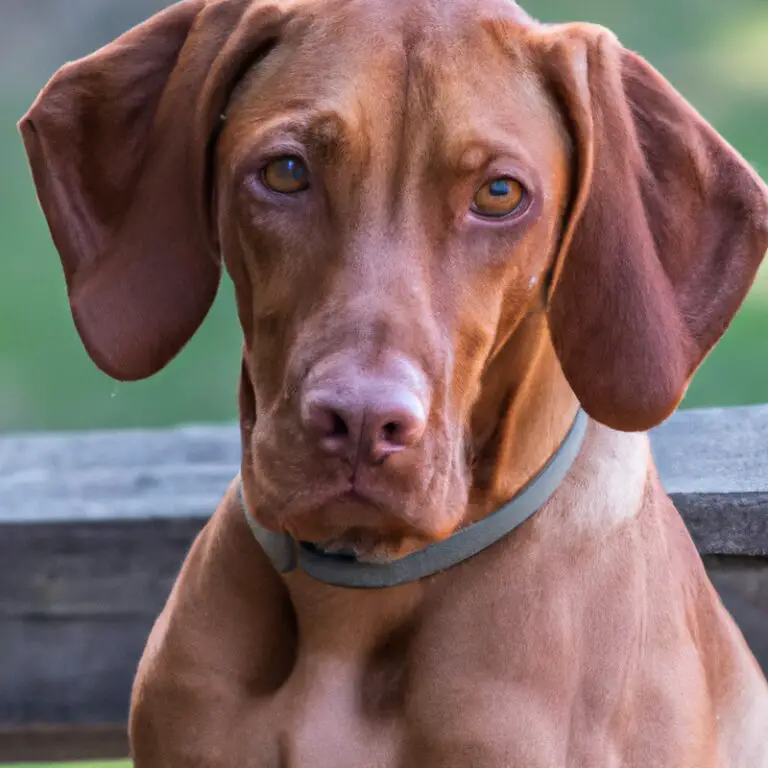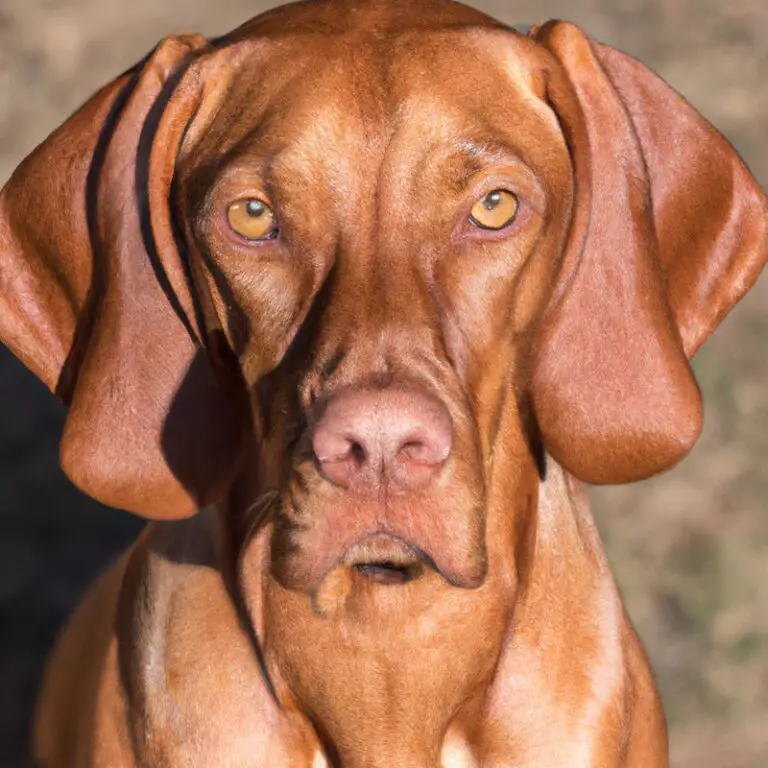How Do I Help My Vizsla Cope With Loud Noises Like Fireworks Or Construction?
Key Takeaways:
- Gradual exposure to loud noises can help desensitize your Vizsla and reduce their anxiety.
- Providing a safe, quiet space for your Vizsla during loud events can help them feel more secure.
- Calming techniques, such as music or pressure wraps, may help soothe your Vizsla during loud noises.
- Consult with a professional trainer or veterinarian for additional advice on managing your Vizsla’s noise-related fears.
Are fireworks and construction noises turning your Vizsla into a trembling bundle of nerves? Don’t worry, you’re not alone.
As a lifelong Vizsla enthusiast and dog behavior expert, I’ve seen countless Vizslas struggle with the deafening sounds of fireworks or construction.
These loud noises can send their sensitive and dynamic nature into overdrive, leading to anxiety and stress. But fear not! In this blog, I’ll guide you through practical and proven steps to help your beloved Vizsla cope with loud noises.
From creating a safe space to gradual exposure and sound therapy, we’ll explore various strategies to ease their fears.
So, let’s embark on this journey together and turn those trembles into tail wags!
Understanding the Vizsla breed
Characteristics of Vizslas
Vizslas are energetic and affectionate dogs that make great companions.
Some key characteristics of Vizslas include their high energy levels, need for exercise, and their love for human interaction.
They are intelligent and trainable, but can become bored easily if not given enough mental and physical stimulation.
Vizslas are also known for their loyalty and sensitivity, which means they may not respond well to harsh training methods.
Keep in mind that these dogs thrive in active households and require plenty of attention and exercise to be happy and well-adjusted.
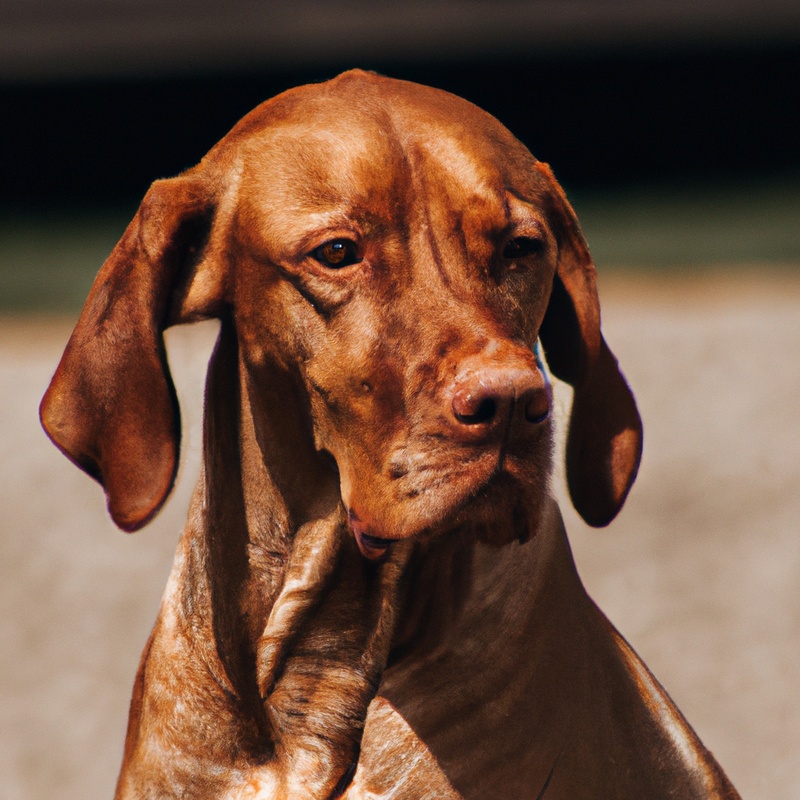
Sensitivity to loud noises
Vizslas are known to be sensitive to loud noises. They may become anxious or scared when they hear fireworks, thunderstorms, or construction sounds.
To help your Vizsla cope with this sensitivity, you can:
- Create a safe space: Designate a quiet room or area where your Vizsla can retreat during noisy times.
- Use sound-masking techniques: Play soft music or white noise to help drown out the loud sounds.
- Provide comforting distractions: Engage your Vizsla in activities or games that they enjoy to help redirect their attention.
- Gradual desensitization: Expose your Vizsla to low levels of noise and gradually increase the volume over time, helping them become accustomed to the sounds.
- Seek professional help: If your Vizsla’s sensitivity to loud noises is severely affecting their well-being, consider consulting a professional dog trainer or behaviorist for guidance.
Recognizing the impact of loud noises on Vizslas
Why loud noises can be stressful for Vizslas
Loud noises can be stressful for Vizslas because of their sensitive nature.
Their acute hearing allows them to pick up on even the smallest sounds, making loud noises overwhelming for them.
Vizslas tend to find sudden and loud sounds like fireworks or construction disturbing and may react with fear or anxiety.
This stress can lead to various behaviors such as hiding, trembling, or even attempts to escape.
It is important to understand and be mindful of this sensitivity to help your Vizsla feel safe and secure during these situations.

Common behavioral reactions to loud noises in Vizslas
Vizslas, like any other dogs, may exhibit common behavioral reactions to loud noises.
Some of these reactions include shaking, trembling, panting, pacing, hiding, whining, barking excessively, trying to escape, or seeking comfort from their owners.
Additionally, they may display signs of fear or anxiety, such as flattened ears, dilated pupils, or a tucked tail.
It’s essential to understand and recognize these reactions to provide appropriate support and help your Vizsla cope with loud noises.
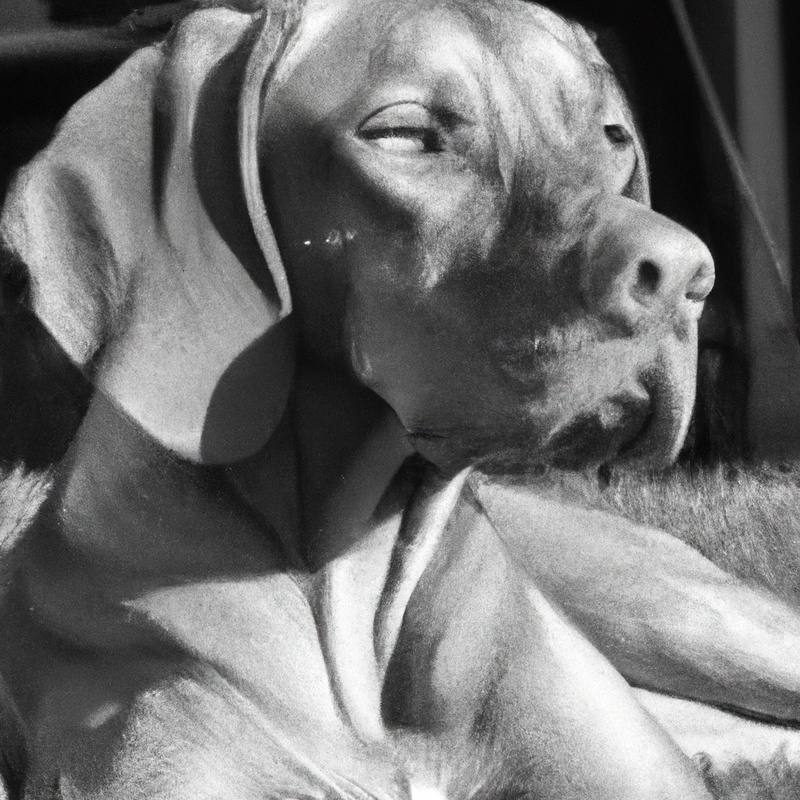
Steps to help Vizslas cope with loud noises
Creating a safe and comfortable space
Creating a safe and comfortable space for your Vizsla is essential in helping them cope with loud noises. Here’s how you can do it:
- Find a quiet room or area in your home where your Vizsla can retreat to when loud noises occur.
- Provide a cozy and comfortable bed or crate for them to feel secure in.
- Block out excessive noise by closing windows, using curtains or blinds, or playing white noise to drown out sounds.
- Create a positive association by offering treats, toys, or a favorite blanket in their safe space.
- Use natural calming aids like lavender essential oil or a calming pheromone spray to help relax your Vizsla.
- Consider using a thunder shirt or anxiety wrap to provide a comforting sensation of pressure.
- Stay calm and reassure your Vizsla with soothing words and gentle petting if they seek comfort from you.
By creating a safe and comfortable space, you can help your Vizsla feel secure during loud noises and reduce their anxiety.
Desensitization techniques
Desensitization techniques involve gradually exposing your Vizsla to the loud noises that trigger anxiety or fear in a controlled and positive way.
Start with low-volume sounds and gradually increase the intensity over time.
Use treats, toys, and positive reinforcement to create a positive association with the noises.
Break down the noise into shorter bursts and gradually increase the duration.
Repeat the process consistently, but always ensure your Vizsla feels safe and comfortable.
Consult with a professional dog trainer if needed.
Noise masking and distraction
To help your Vizsla cope with loud noises like fireworks or construction, noise masking and distraction can be effective techniques.
- Noise Masking: Play calming background sounds such as classical music or white noise to help mask the loud noises and create a more soothing environment for your Vizsla.
- Distraction: Engage your Vizsla in activities that divert their attention away from the noise, such as playing with their favorite toys, giving them puzzles to solve, or practicing obedience commands.
By using noise masking and providing distractions, you can help alleviate your Vizsla’s anxiety and help them cope with loud noises more effectively.
Calming supplements and pheromone therapy
Calming supplements and pheromone therapy can be helpful for Vizslas dealing with loud noises. Some calming supplements, like chamomile or valerian root, may alleviate anxiety.
Pheromone therapy, such as using a diffuser or collar, can provide a sense of security.
Always consult with your vet before starting any supplements and consider trying different options to find what works best for your Vizsla.
Gradual exposure to loud noises
Progressive desensitization training
Progressive desensitization training is a helpful method for helping your Vizsla cope with loud noises.
Here’s how you can do it:
- Start by exposing your Vizsla to low levels of the loud noises that bother them, like playing a recording of fireworks or construction sounds at a low volume.
- Gradually increase the volume over time, always ensuring that your Vizsla remains calm and relaxed. If they show signs of anxiety or stress, decrease the volume and try again later.
- Reward your Vizsla with treats and praise when they remain calm during exposure to the noise. This positive reinforcement will help them associate the loud noises with positive experiences.
- Repeat this training process regularly, gradually increasing the volume and intensity of the loud noises as your Vizsla becomes more comfortable.
Remember to be patient and go at your Vizsla’s pace.
It may take time for them to fully overcome their fear of loud noises, but with consistent training, they can become more tolerant and less anxious.
Consultation with professional dog trainers or behaviorists
Consulting with a professional dog trainer or behaviorist can be immensely helpful in addressing your Vizsla’s fear of loud noises. These experts have the knowledge and experience to assess your dog’s specific needs and develop a tailored training plan.
They can teach you effective techniques to gradually expose your Vizsla to loud noises in a controlled and safe manner, helping them build confidence and reduce anxiety.
Additionally, trainers and behaviorists can provide valuable guidance on managing stress during challenging situations and offer support throughout the training process.
Additional strategies for managing loud noises
Using white noise or calming music
Using white noise or calming music can be helpful in managing loud noises for your Vizsla. These sounds can help mask the noise and create a more soothing environment for your dog.
You can play calming music specifically designed for dogs or use white noise machines or apps that produce constant, gentle sounds.
Experiment with different types of sounds to see what your Vizsla responds to best. Make sure the volume is not too loud, as it can have the opposite effect.
Engaging in physical and mental exercise
Engaging in physical and mental exercise is key when helping your Vizsla cope with loud noises.
Regular exercise helps to release excess energy and reduce anxiety.
Take your dog for daily walks, play fetch, or consider enrolling them in agility training.
Mental exercise, such as puzzle toys or obedience training, can also help keep their mind occupied and focused.
Remember, a tired dog is a happy and calmer dog.
Ensuring proper identification and containment
One of the most important steps in managing your Vizsla’s response to loud noises is to ensure proper identification and containment.
Make sure your dog has a collar with up-to-date identification tags that include your contact information.
Additionally, microchipping your Vizsla is highly recommended as a permanent form of identification.
When loud noises are expected, create a safe and secure environment for your dog by providing a quiet and comfortable space where they can retreat to.
A properly secured and escape-proof area, such as a crate or a designated room, can help alleviate their anxiety and provide a sense of security.
Seeking veterinary guidance when necessary
If you ever feel unsure or concerned about your Vizsla’s reaction to loud noises, it’s always a good idea to seek veterinary guidance. Your vet can provide expert advice and guidance tailored to your dog’s specific needs.
They may recommend techniques such as desensitization or medication to help your Vizsla cope with loud noises.
Don’t hesitate to reach out to your vet for support and assistance when necessary.
Frequently Asked Questions (FAQs)
What are common signs of noise anxiety in Vizslas?
Common signs of noise anxiety in Vizslas include trembling, seeking shelter, restlessness, excessive licking or chewing, panting, pacing, excessive barking or howling, and trying to escape.
It’s important to recognize these signs and provide a safe and comforting environment for your Vizsla during loud noises.
Can Vizslas be trained to overcome their fear of loud noises?
Yes, Vizslas can be trained to overcome their fear of loud noises.
It’s important to remember that every dog is unique, so the training process may vary.
However, the key is to gradually expose your Vizsla to the noise in a controlled and positive manner.
Start with low-volume noises and reward your dog for staying calm.
Gradually increase the volume over time, always making it a positive experience.
Seek professional guidance if needed.
Patience and consistency are key in helping your Vizsla overcome their fear.
Should earplugs or earmuffs be used for Vizslas during fireworks or construction?
Yes, earplugs or earmuffs can be used for Vizslas during fireworks or construction.
These noise-canceling devices can help reduce the stress and anxiety that loud noises can cause in dogs.
It’s important to choose the right size and fit to ensure comfort and effectiveness.
Always introduce the earplugs or earmuffs in a positive and gradual manner, allowing your Vizsla to get used to wearing them before the actual event.
Monitor your dog’s comfort level and remove the devices if they show signs of distress.
Is it recommended to use sedatives for Vizslas during noisy situations?
Using sedatives for Vizslas during noisy situations is not recommended.
Sedatives can have negative side effects on your dog’s health and well-being.
It’s best to focus on other methods to help your Vizsla cope with loud noises, such as creating a safe and quiet environment, providing comfort, and gradually desensitizing them to the sounds.
Consulting with a professional dog trainer or behaviorist can also be beneficial in addressing your Vizsla’s anxiety and fear during noisy situations.
Final Verdict
It is essential to understand the impact of loud noises on Vizslas and take proactive steps to help them cope.
Vizslas are sensitive dogs, and loud noises can cause stress and anxiety.
By creating a safe space, using desensitization techniques, noise masking, and calming supplements, owners can provide comfort and support.
Gradual exposure to loud noises through sound therapy and professional guidance can also be effective.
Additionally, engaging in physical and mental exercise, using white noise or calming music, and ensuring proper identification and containment are important strategies.
Remember to consult with a veterinarian when necessary.
By implementing these strategies, owners can help their Vizslas navigate loud noises with more ease, ensuring their well-being and happiness.

